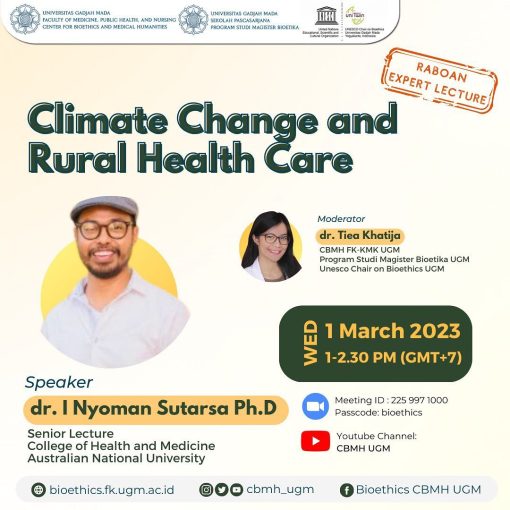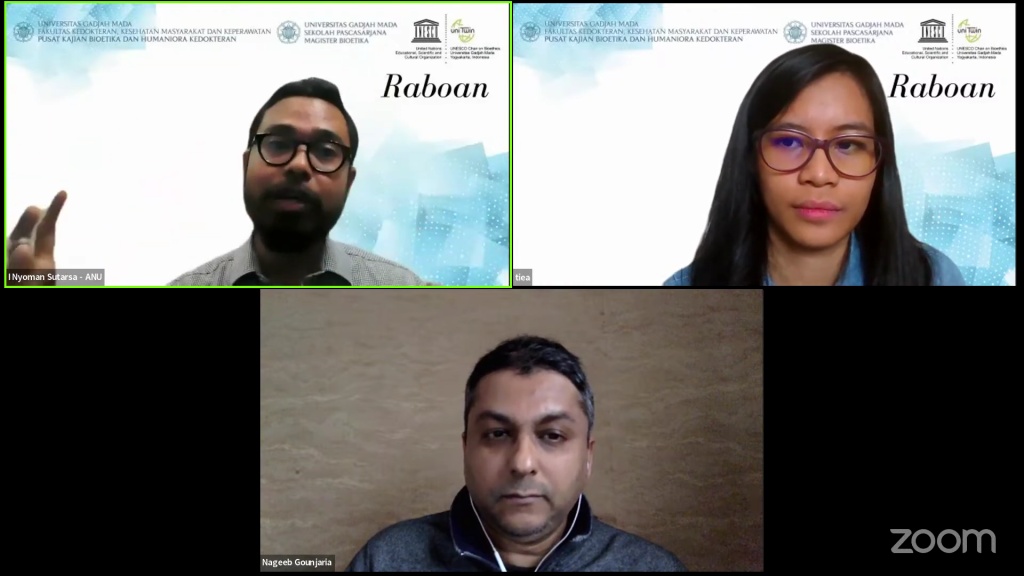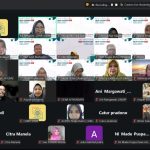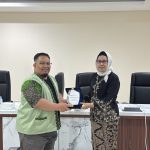

Wednesday (1/03), the Center for Medical Bioethics and Humanities held the Raboan Discussion Forum. This time, the topic that we raised was Climate Change and Rural Health Care. The speaker for this discussion was dr. I Nyoman Sutarsa, Ph.D and moderated by dr. Tiea Khatija.
Climate change is anthropogenic emission, such as coal burning activities. So that it will increase in rainfall which causes flooding, prolonged drought can cause food insecurities. If food insecurities have occurred, those who feel the biggest impact are the vulnerable people. Climate change can also cause extreme weathers such as storms, hailstorms, heat waves, and bush fires.
The relationship between climate change and health: in some areas where food supply is difficult, if climate change occurs it will reduce the quantity of products from the agricultural sector. Then if the salt level in the soil increases beyond the limit, it will affect the quality of the food.
Rural Area Challenges: access for health services is still difficult due to its geographical location and making it more difficult to get there. The second challenge is economic welfare, the job opportunities are limited and in the event of a natural disaster it is directly affected and suffers losses (climate dependent sectors). Then there is the cultural background, a family/group that usually suffers from hereditary losses. The last is health equities, the high incidence of infections and disease complications because they are not treated quickly.
There are several Intersecting vulnerabilities such as:
- Extreme weather: if there is long drought and too much rainfall, it will affect water or food scarcity.
- Food insecurity: when there is a flood, then the transportation route is cut off so that food production and supply chain is disrupted.
- Vector borne diseases: causing the expansion of vectors such as dengue or malaria.
- Regional increase in pollens and spores causes an exacerbation of respiratory diseases in people who already have congenital asthma. Because there is no pulmonologist in rural areas.
Meanwhile the adaptation strategies strategies are:
- Monitoring climate health capacity and vulnerability
- Trying to prepare primary care when a sudden disaster occurs.
- Strengthen the function of the primary health care (Puskesmas) and oversee the distribution of vaccines.
- Increasing public education and awareness supported by the community to provide education about the indirect and direct impacts of climate changes.
- Develop alert systems or warning systems.
- Strengthen food safety control, vaccine programs, vector control, case detection and treatment.
- Identify risk indicators and health outcomes from the community.
- Improving health workforce capacity in rural areas.
Watch full video here
Writer: Safirra Afifah Firanka
Editor: Alifia Nuurma Addini






